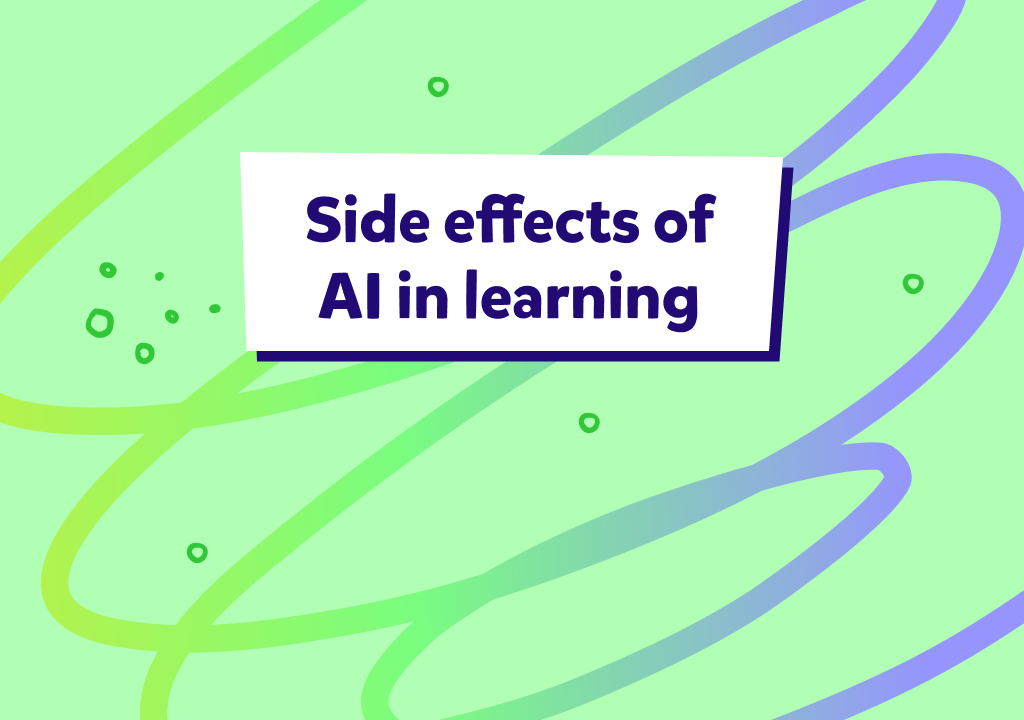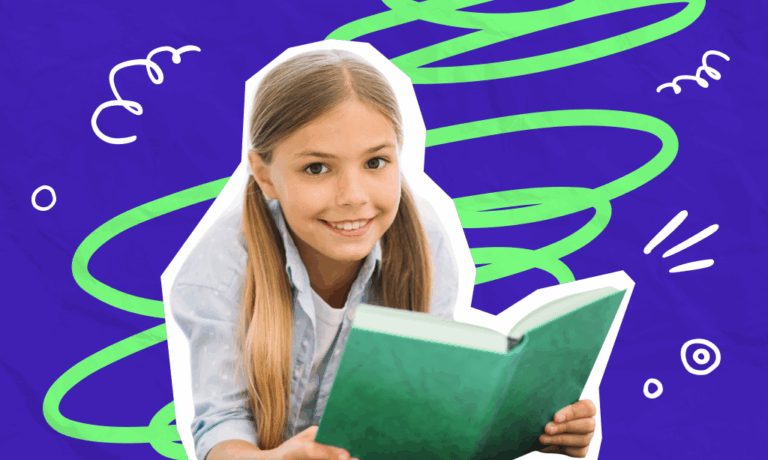Find top websites to read English books for free online. Explore easy reads, storybooks, and language resources to boost your English skills all at no cost.
Side Effects of AI in Learning: Understanding the Risks and Challenges
- AI can help but also has risks: Tools like ChatGPT and Grammarly can support learning, but overreliance can hurt writing, creativity, and problem-solving skills.
- Guidance is important: Teachers and parents should set clear rules for when and how AI can be used, helping students use it as a tool rather than a replacement.
- Safe use improves learning: When used responsibly, AI can support brainstorming, practice, and feedback, helping students build confidence and real skills.
Technology is changing the way students learn, and AI tools like ChatGPT, Grammarly, and online translators are now part of many classrooms. Many students use them for a multitude of things! While these tools can be helpful, they also come with some risks and challenges. People are asking questions like “Is it safe to use AI in education?” and “How does AI affect learning?”

What are the Dangers of AI?
While using AI has its perks and makes life just a little bit easier, too much can cause negative effects, especially in education; things like weaker writing skills, less creativity, and less problem-solving practice. In some cases, students may rely on AI so much that it actually hurts their learning. So what are the real dangers, and how can we make sure students still learn in a healthy way?
In this article, we’ll go through five disadvantages of AI in learning and explain why these tools can sometimes be bad for students!
Overreliance on AI
One of the main dangers of AI in learning is that students can become too dependent on it. When students rely on AI to do most of their work, they may spend less time thinking for themselves or practicing independently.
For example, a student might use AI to write an essay without really understanding the topic. While the assignment looks complete, the student misses the chance to actually learn. Over time, this kind of reliance can show some of the negative effects of AI on learning.
Parents and teachers often ask, “How does AI affect studying?” and overreliance is one of the biggest ways it can harm real learning.
Decline in Writing and Language Skills
Another common risk is that writing and language skills can suffer when they rely too much on AI. Using AI to fix or do everything can reduce the time students spend practicing their own skills. Over time, this may lead to weaker spelling and less creativity.
ESL students might copy text generated by AI instead of constructing their own sentences. While the work may look correct, they miss out on practicing the very skills they need to improve. Many parents wonder, “Is it safe to use AI in education?” and this shows how improper use can create negative effects of AI.
Reduced Academic Integrity
AI can also make it easier for students to copy work or rely on generated content, which can blur the line between their own ideas and AI. As a result, it can create problems with honesty and fairness in schoolwork.
In addition, teachers and schools may struggle to detect when AI has been used. Many parents and students ask questions like, “Can schools detect ChatGPT?” Furthermore, it can be difficult to know for sure, leading to concerns such as “How do schools know if you use AI?” Overall, this shows how AI can affect learning and academic standards if not used carefully.
Cognitive and Emotional Challenges
Our next point looks at how AI can affect the way students think and feel. Some students might become too confident and think they fully understand something just because the AI gave them the answer. Others may start to rely on these tools too much, which can make it harder for them to solve problems by themselves.
If the AI gives a wrong answer or confusing help, students can end up feeling upset or frustrated. These examples show the dangers of AI when it’s not used carefully and some of the negative effects of AI on learning and confidence.
Loss of Creativity and Original Thinking
Our final side effects of AI looks at how it can limit students’ imagination and original thoughts. When students rely on AI to come up with ideas for essays or projects, they may stop thinking for themselves. Over time, this can make it harder for them to solve problems creatively or develop their own ideas.
This is one major way AI affects education negatively, as it can lower the amount of independent thinking students do. It also shows how ChatGPT can affect students negatively, especially when they depend on it instead of using their own imagination.
Encouraging Safe and Effective AI Use
Even though AI has some risks, it can be a great tool for learning when used the right way! Here are some examples of how students can use it safely:
Brainstorming Ideas: Students can ask AI for topic suggestions for essays, projects, or presentations. This helps them get started without replacing their own thinking.
Practicing Skills: AI can help students practice grammar, vocabulary, or conversation exercises. For example, they might use AI to check their sentence structure after writing a paragraph.
Getting Feedback: Students can get quick feedback on their work to understand mistakes and improve. For instance, AI can point out spelling or grammar errors after the student writes their own draft.
Teachers can support safe AI use by setting clear rules:
Guided Use: Allow AI for brainstorming or checking vocabulary, but require students to do their main work. At Novakid, teachers guide students in a similar way by helping them practice new ideas while still encouraging them to speak and write on their own.
Stages of Use: Let students use AI at specific stages, like planning a project, but not for the final submission. Novakid lessons often add AI lessons and activities in specific units, but maybe not all, so students don’t get over reliant.
Balance and Learning: Encourage students to think critically about AI suggestions instead of following them blindly. Emphasize the importance of understanding and creativity, and ask students to actually think and make sense of what AI suggests.
Our main point today is that there are side effects that come from using AI; without a doubt! However, if used responsibly and under guidance, it can support learning without replacing it.
At Novakid, our teachers help students use these AI tools wisely while practicing English through personalized support. If you want your child to build real skills, stay confident, and enjoy learning English safely, book a trial lesson with Novakid today and see how our expert teachers can help them succeed!
Learn how to read in English with simple tips and reading strategies for English learners. Improve your skills, expand vocabulary, and gain confidence in reading.
In this article we explain what are the benefits of learning English before school and give some tips to parents on how to make a language-rich environment at home.
Find out how Novakid keeps parents updated with after-lesson feedback, progress dashboards, and recorded lessons that make tracking progress easy.
Does scanning for ideas work? What about summarizing the main idea? In the article we share a few ideas on how to understand English texts better.
Learn how virtual reality is changing ESL learning for kids. Explore immersive VR experiences, fun gamified lessons, top educational VR apps, and how VR helps students practice English in real-life.









































